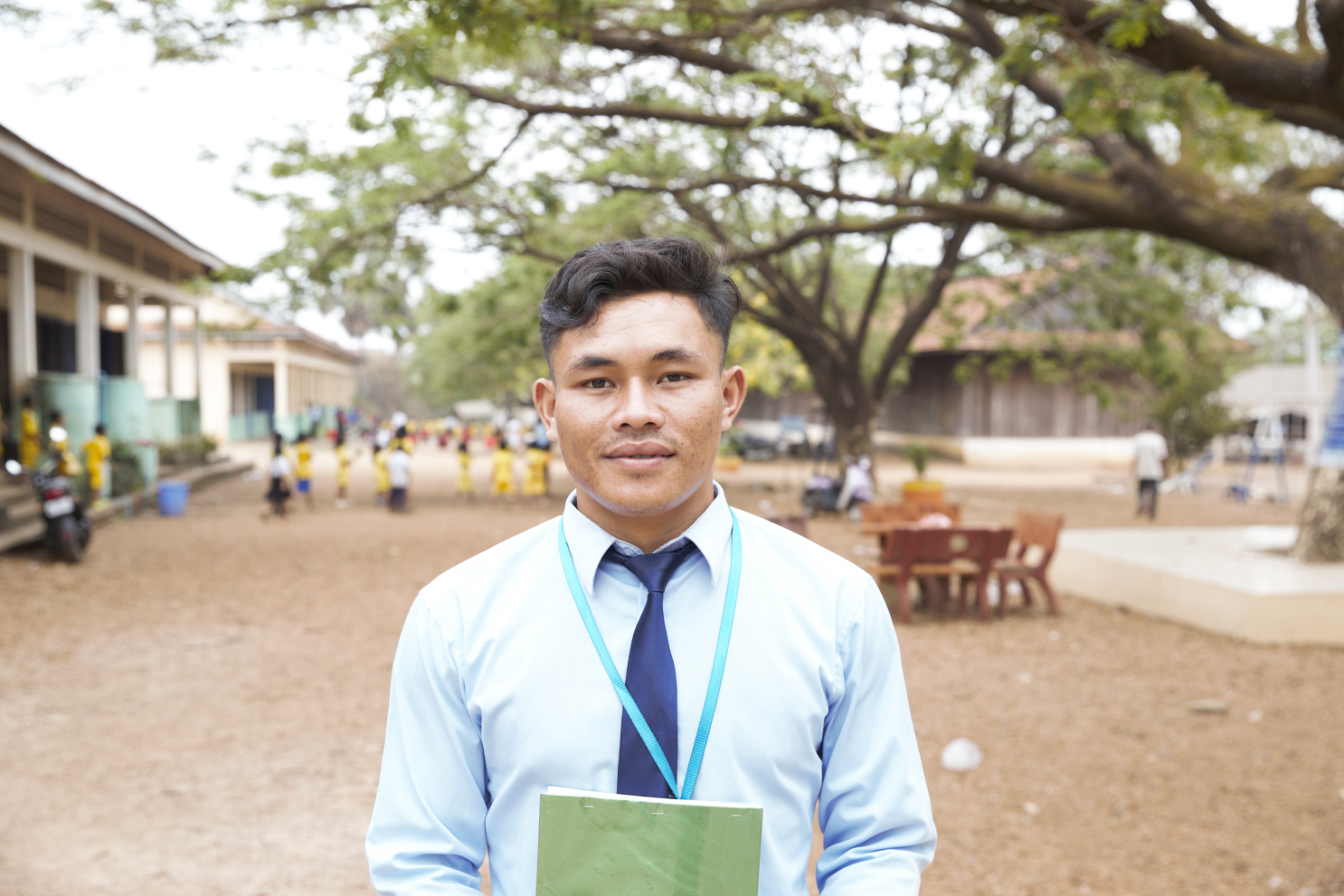Sopheak, a proud Bunong man from Mondul Kiri, Cambodia, is a teacher trainee committed to preserving his community’s culture and language through education. As a child, Sopheak faced the challenge of trying to understand Khmer textbooks and classes taught in a language foreign to him. Overcoming this obstacle and the encouragement from his family empowered him to pursue a career in teaching and work towards bringing more opportunities to his community.
Sopheak shared his passion for teaching and why he believes that multilingual education is essential, not only in Cambodia but especially for Indigenous communities. Sopheak believes teaching in both Khmer and Bunong will help preserve the Bunong language and culture, which are essential for the younger generation’s identity. “Implementing multilingual teaching in the classroom allows more interactions in class and is an important step in preserving our culture and traditions,” Sopheak said.
Sopheak is a second-year teacher trainee and has one more year until he becomes a qualified teacher. Upon graduating, he plans to return home to teach in his mother tongue and Khmer as he is motivated to see more people from his community get educated. He recognizes that teaching in Bunong will allow his students to understand the lessons better, making it easier for them to communicate with him and allowing him to interact more meaningfully with his students.
“Back when I was in school, our teacher was Khmer, so we only used the Khmer language. At first, when I started school, I found it very difficult, I only knew Bunong so I couldn’t understand my teacher very well and I was afraid to speak up in class.” Shared Sopheak.
“As I grew older and learned more Khmer, things did become easier, and I did eventually gain confidence, but I think I would have benefited a lot from learning in both languages”.
Sopheak is aware of the importance of Multilingual Education and its impact on Indigenous students. He believes that the Professional Certificate of Multilingual Education program can benefit students, teachers, and the community.
“If I graduate and return home to teach in my mother tongue, I will feel proud. I think I can help develop our community and preserve our culture and language, it is important that we do not forget our own language and cultural identity.”
Sopheak believes that if schools are inclusive for Indigenous students and teachers are skilled in teaching in multilingual classrooms this will encourage more students to attend school as they’ll feel more connected to their teacher, making learning more meaningful and enjoyable.

